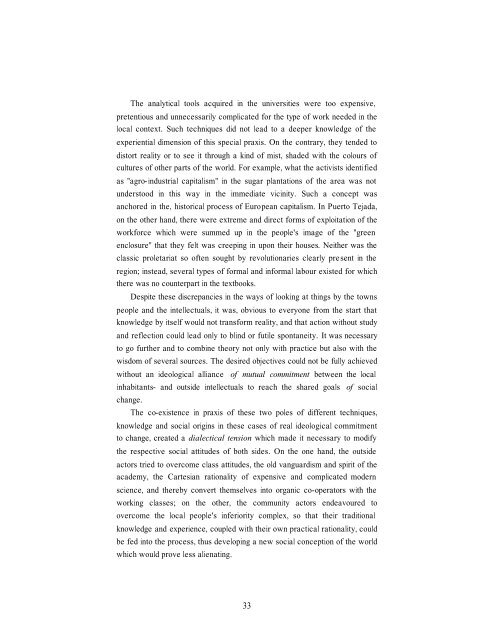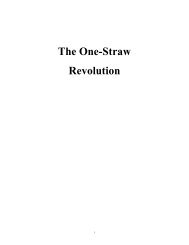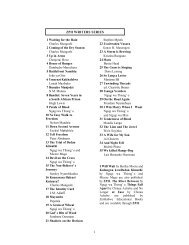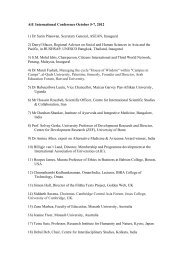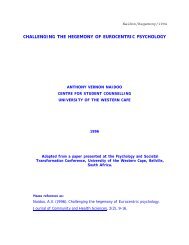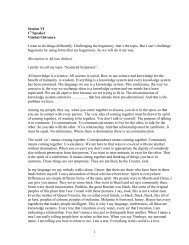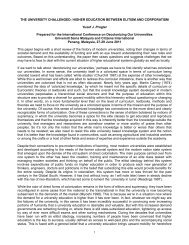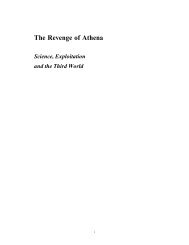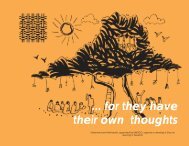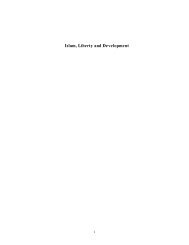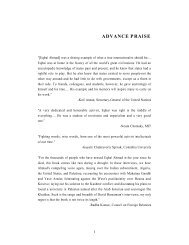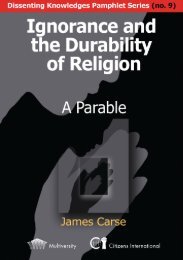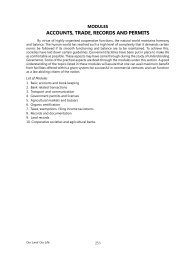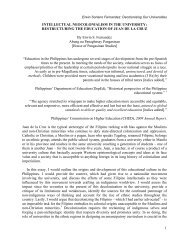Knowledge and People's Power - Multiworld India
Knowledge and People's Power - Multiworld India
Knowledge and People's Power - Multiworld India
- No tags were found...
You also want an ePaper? Increase the reach of your titles
YUMPU automatically turns print PDFs into web optimized ePapers that Google loves.
The analytical tools acquired in the universities were too expensive,pretentious <strong>and</strong> unnecessarily complicated for the type of work needed in thelocal context. Such techniques did not lead to a deeper knowledge of theexperiential dimension of this special praxis. On the contrary, they tended todistort reality or to see it through a kind of mist, shaded with the colours ofcultures of other parts of the world. For example, what the activists identifiedas "agro-industrial capitalism" in the sugar plantations of the area was notunderstood in this way in the immediate vicinity. Such a concept wasanchored in the, historical process of European capitalism. In Puerto Tejada,on the other h<strong>and</strong>, there were extreme <strong>and</strong> direct forms of exploitation of theworkforce which were summed up in the people's image of the "greenenclosure" that they felt was creeping in upon their houses. Neither was theclassic proletariat so often sought by revolutionaries clearly present in theregion; instead, several types of formal <strong>and</strong> informal labour existed for whichthere was no counterpart in the textbooks.Despite these discrepancies in the ways of looking at things by the townspeople <strong>and</strong> the intellectuals, it was, obvious to everyone from the start thatknowledge by itself would not transform reality, <strong>and</strong> that action without study<strong>and</strong> reflection could lead only to blind or futile spontaneity. It was necessaryto go further <strong>and</strong> to combine theory not only with practice but also with thewisdom of several sources. The desired objectives could not be fully achievedwithout an ideological alliance of mutual commitment between the localinhabitants- <strong>and</strong> outside intellectuals to reach the shared goals of socialchange.The co-existence in praxis of these two poles of different techniques,knowledge <strong>and</strong> social origins in these cases of real ideological commitmentto change, created a dialectical tension which made it necessary to modifythe respective social attitudes of both sides. On the one h<strong>and</strong>, the outsideactors tried to overcome class attitudes, the old vanguardism <strong>and</strong> spirit of theacademy, the Cartesian rationality of expensive <strong>and</strong> complicated modernscience, <strong>and</strong> thereby convert themselves into organic co-operators with theworking classes; on the other, the community actors endeavoured toovercome the local people's inferiority complex, so that their traditionalknowledge <strong>and</strong> experience, coupled with their own practical rationality, couldbe fed into the process, thus developing a new social conception of the worldwhich would prove less alienating.33


